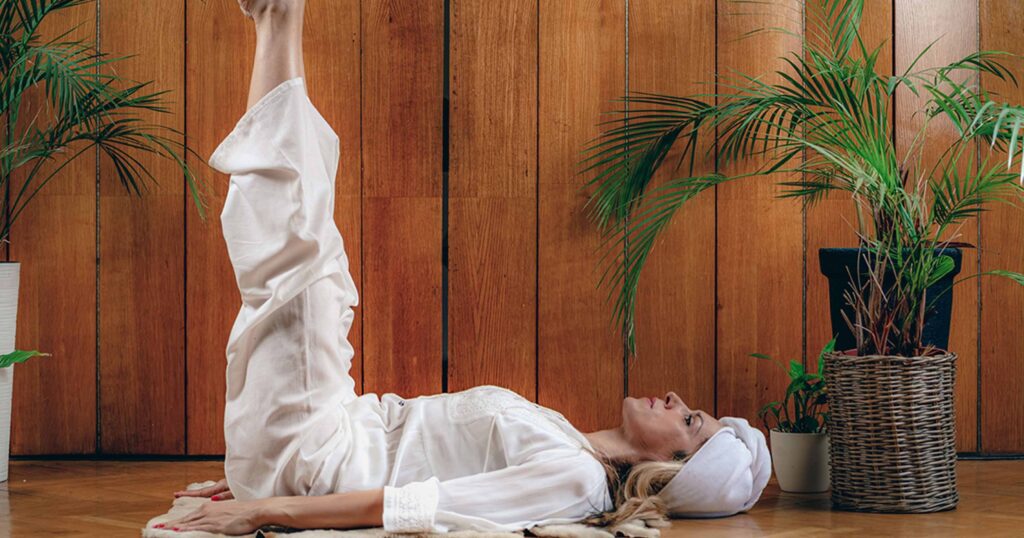Understanding Stress and Relaxation
Life moves fast, and stress can feel like an unavoidable part. Deadlines, responsibilities, and unexpected challenges can quickly build up, keeping you in a constant state of high alert. While stress is a natural response meant to protect you, too much of it can take a toll on your mental and physical health.
Relaxation isn’t just a luxury — it’s essential. It’s how your body resets, recharges, and finds balance again. And you don’t need a week-long retreat to feel the benefits. Small, simple practices like mindful breathing, movement, or taking intentional breaks can help you shift from stress mode to a calmer, more present state. This guide shares simple, practical ways to bring more relaxation into your daily life.
How Everyday Stress Affects Mental Health
Stress is a natural response that helps us deal with challenges, but when it sticks around for too long, it can take a real toll on both the mind and body. The fight, flight, or freeze response is great when facing actual danger (like running from a tiger), but not so helpful when dealing with never-ending work emails or daily pressures. Over time, staying in this heightened state can leave you feeling drained, anxious, and overwhelmed.
Chronic stress doesn’t just affect how you feel — it can change your brain. Research shows it impacts areas like the prefrontal cortex and limbic system, which help with decision-making, emotions, and memory. This can make it harder to focus, regulate moods, and manage daily life.
Stress also messes with the body in unexpected ways. It can disrupt gut health (which is closely linked to mood), weaken the immune system, and even affect hormones. And when physical symptoms start piling up, they only add to the stress, creating a frustrating cycle, keeping you trapped.
The good news? You don’t have to stay stuck in stress mode. There are simple ways to reset your nervous system, helping your body and mind unwind. Small changes, like mindful movement or breathing exercises, can make a big difference over time and ensure you are equipped to deal with daily stressors as you go about your day!
Breathing, Meditation And Body-Based Relaxation
Relaxation techniques can help calm the nervous system, ease stress, and create a sense of safety in the body. Here are a few methods to try:
Body Scan: Take a few deep breaths and slowly bring your attention to different parts of your body, releasing any tension as you go. This practice helps you feel more connected to yourself, though it may not be the best fit if you’re dealing with body image concerns.
Guided Imagery: Picture a peaceful place—maybe a quiet beach or a cosy cabin. You can use apps or recordings to help, but the key is choosing something that truly feels calming to you. It’s a great way to shift your mindset, though it might be tricky if you struggle with intrusive thoughts.

5-4-3-2-1 Grounding: When you’re feeling overwhelmed, try this simple technique to bring yourself back to the present. Notice 5 things you can see, 4 things you can touch, 3 things you can hear, 2 things you can smell, and 1 thing you can taste. It’s a quick and easy way to feel more centred.
Box Breathing: Ihale for four counts, hold for four, exhale for four, and hold again for four. Repeat a few times. This rhythmic breathing can calm your nervous system and help you feel more in control, especially in stressful moments. Plus, it’s a great quick reset — perfect for a short work break or whenever you need it during the day!
You could also try a quick guided breathing exercise whenever you need to ground yourself
Repetitive Prayer: This one’s simple yet highly effective. Gently repeat a short prayer or meaningful phrase as you focus on your breath. This can be a grounding and comforting practice, especially if spirituality plays a role in your life.
Movement for Relaxation
Moving your body is a simple yet powerful way to release stress and reset your mind. Whether it’s stretching, yoga, or a short walk, gentle movement helps you feel more grounded and present. Try swaying to your favourite music, rolling your shoulders, or simply standing up and shaking out tension. Even a few mindful breaths while stretching can do wonders. The goal isn’t exercise—it’s to move in a way that feels good, helps you unwind, and reconnects you with your body.
Getting Started: Tips for a Relaxation Practice
Quick stress relief is great, but your daily habits shape your well-being in the long run. The key is to build a practice that fits you—something that feels natural and sustainable. Here’s how to begin:
Start Small: Even a few minutes of deep breathing, gentle movement, or quiet reflection can make a difference. No need to overcomplicate it!
You can begin with a short meditation, like this one: https://www.soulsensei.in/play/ami-patel-short-guided-meditation-center-your-mind
Choose What Feels Good: Relaxation isn’t a chore. Whether it’s stretching, sipping tea in silence, or listening to calming sounds, pick what actually helps you unwind.
Pair It with an Existing Habit: Attach your practice to something you already do, like deep breathing before you check your phone or a quick body scan while waiting for your coffee to brew.
Create a Space for It: You don’t need a dedicated room, just a small, inviting spot where you feel at ease—your favourite chair, a cosy corner, or even just dimming the lights.
Be Consistent, but Flexible: Aim for regularity, but don’t stress if you miss a day. Relaxation should support you, not add to your to-do list.
The more you weave these small moments into your day, the more natural they’ll feel, helping you stay grounded and better manage stress.
At SoulSensei, we provide resources and guided practices to help you manage stress and find balance. You can create a calmer, more grounded life by incorporating simple relaxation techniques into your daily routine.